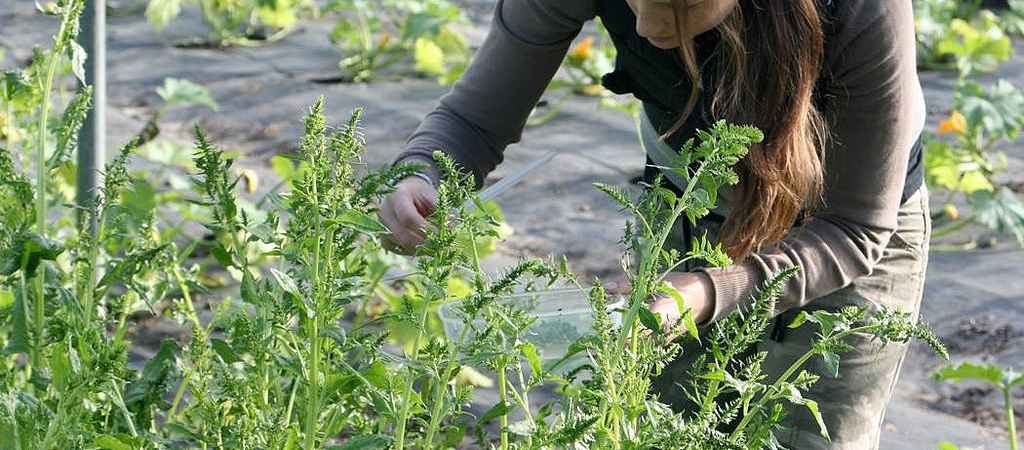Bringing in the bugs
The Organic Grower - No 35 Summer 2016, pp. 14-17
Useful grower insights into protected cropping management to encourage beneficial insects and discourage pests.
Resource explained
Commercial greenhouses have little in the way of the natural ecosystems that you can find outdoors which can help combat pests and diseases. In this article published in The Organic Grower, Peter Dollimore of Hankham Organics (who sell horticultural produce direct to the consumer and are one of only a few organic glasshouse growers in the UK), discusses the potential for addressing the balance within large scale protected systems based on his experiences. He describes using biological controls on pests, both in greenhouses and the field, and discusses how a combination of buying in predatory insects and maintaining habitat to support them has reduced pest damage on crops while allowing the business to follow organic guidelines.
Findings & recommendations
- Increasing the diversity of crops increases resilience to pests.
- Parasitic wasps are a particularly useful group of insects; different species parasitise different pests including asparagus beetles and cabbage white caterpillars. They can be encouraged by reducing spraying and allowing space for overwintering by not cutting back all dead plants.
- Parasitising pest species does not kill them immediately, but does reduce their ability to feed, leading to a reduction in crop damage.
- Aphids can be a problem in greenhouse environments, reproducing quickly in favourable conditions. Planting poached egg plants near spring greens attracts hoverflies whose larvae predate aphids.
- Several plant species attract beneficial insects by providing nectar and areas to overwinter, encouraging a build-up of insect populations i.e. golden rod, yarrow, dill, borage, thyme, marigold, marjoram and oregano. Some of these are also useful crops in their own right.
- Plants that attract and support beneficial insects can be planted in strips in greenhouses and surrounding fields.
- Encouraging diversity in surrounding hedges will also help provide habitat and food for beneficial insects.
- It it worth relocating ladybird larvae to other crops where they can help predate (see cover image).
- These biological control measures do not negatively impact on the viability of a commercial horticulture enterprise.

